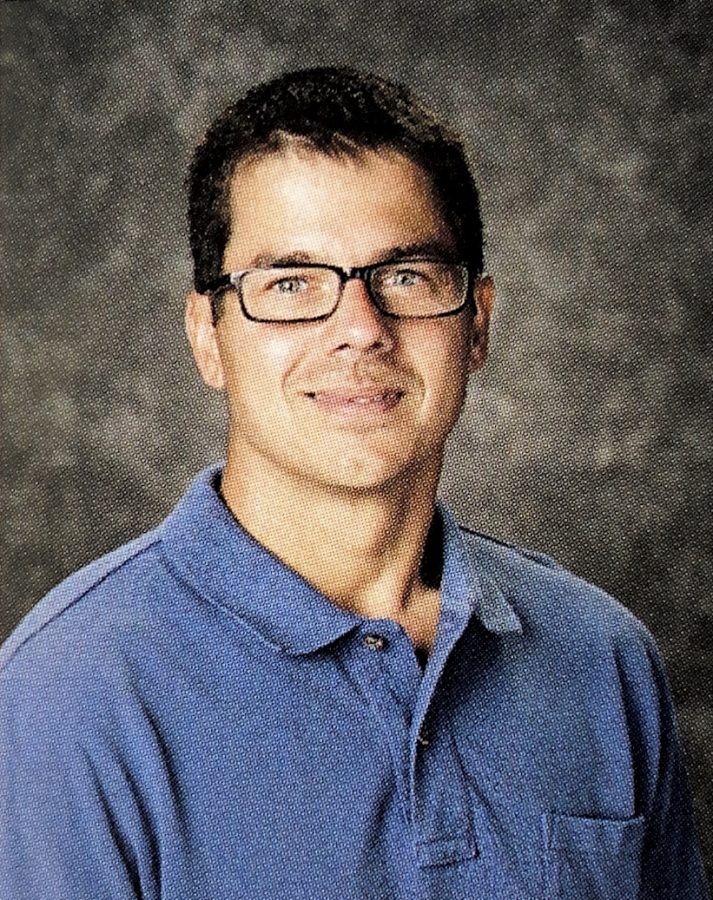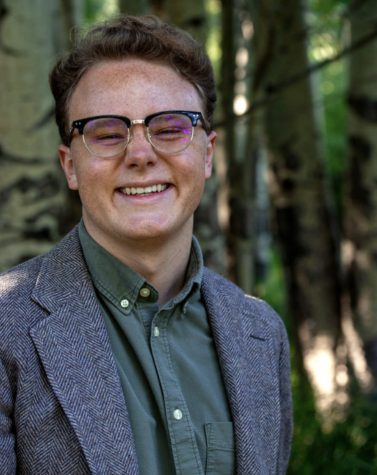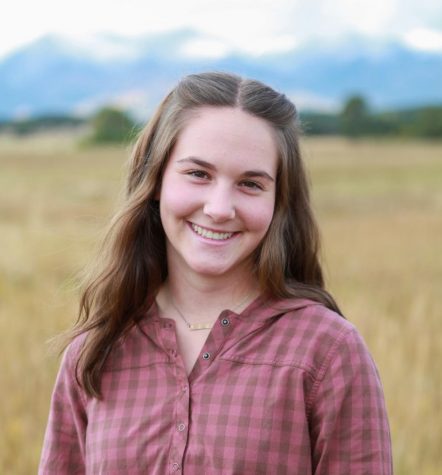Rob Tressler Moves On From SHS
May 25, 2021
“Adolescents have always been where my heart’s at,” said Salida High School counselor Robert Tressler, as he sat at his desk, work scattered around. He’s been the High School Counselor for nearly a decade, and has worked in the district for nearly two. But it was announced that after this school year, he’ll be saying goodbye to this job.
Tressler didn’t grow up in Colorado, and he had a long journey to get here. “I grew up outside of Philadelphia, a town called Abington. That was an extremely rough neighborhood. Walking to school I’ve been shot at, I’ve been stabbed for not joining gangs,” said with an almost saddening nonchalaunt-ness. “It was good and bad,” he elaborated. “The city life was good ‘cause we had a lot of opportunities and different cultural experiences, like our field trips. We went to the liberty bell, independence hall, and saw the historical buildings. That really got me into social studies and history and things like that. The down side was, we lived in a neighborhood that I’ve seen fights, family fights, gun fights, things like that.”
High school was a different time in Tressler’s life. He struggled keeping his grades up, despite being sharp. “I enjoyed high school socially. I fit in fine; I didn’t have any issues there. But I didn’t have a solid home life,” Tressler said. “My dad was a quadriplegic, so he was in a wheelchair. My parents separated, and my dad didn’t care about homework, so honestly I didn’t do much homework. I didn’t have anyone asking for it. So that didn’t help, academically. But I was smart enough to get by with decent C’s, mostly C’s.” Living in a rough neighborhood, he had to be someone he wasn’t, something that really hurts him. “You had to be this hard person in the city or else you got beat up. It created someone I wasn’t. I was like ten years old and 40 pounds, I wasn’t this big intimidating guy. I had to act tough, so I wouldn’t get beat up,” he said. “That created this hardened kid who I didn’t want to be.” He knew he wanted out. “I knew I wanted better in life, and I knew college was the only way out of that.”
In college, everything changed for him. “I went to Penn State. But at that point, in college, I thrived. The atmosphere was great,” he said. “Once I graduated college, I worked in residential treatment facilities for abused kids and things like that. Then I did two years of Americorp, and that paid for my masters degree. That’s when I went into school counseling.”
Tressler has spent a lot of time in Salida, working in the district since he moved here in 2004. “At that time, the middle school had an alternative classroom, so the middle school would send at-risk students there. I was a school counselor there for a year, and then in 2005 the middle school counselor retired. I stayed there until 2010, and then in 2010 the high school counselor retired. The district decided not to fill that position and only went to two counselors.” After that, Tressler became the sole high school counselor and the Principal of Horizons Exploratory Academy, jobs that he found incredibly stressful but fulfilling. “That was a tough task. Those were two full time jobs and I never had high school experience. I basically worked with 15 and younger,” he said. “I was part of building that program, and my educational philosophy would be the educational environment needs to change, not the student. So since Horizons is designated as an alternative education environment, you have more flexibility in how students earn credits. That provided a different pathway for every kid.”
“When I got to the high school, this is what I got for training,” he chuckled, holding up a calendar. But he said that these two jobs, even after he left his principal position after three years, provided a unique opportunity to make the school more accessible for all kids. “That’s when I went back to my high school experience. What would I enjoy. Co-ops, internships, and we started figuring that out.”
During his time at the high school, Tressler focused on developing alternative ways of teaching, and making sure all students felt fulfilled. “Trying to find ways to break up the traditional high school model is always a good challenge for me,” he said. “I just remember being in high school and not necessarily enjoying the sitting there for eight hours. I know that can be hard. […] I see it now with my own kid. Like [my daughter] is a great artist, and she went through Longfellow not being enriched in that subject because of Longfellow’s traditional learning enviornment. She’s not thinking about being an artist because she hasn’t been enriched, and that’s heartbreaking.”
But as the years went on, Tressler felt fairly burnt out. It was a lot of work, a long schedule, and it wasn’t really what he wanted to be doing. “With a counselor, you get bogged down with a lot of testing and a lot of scheduling. I was the only counselor for so long. It felt like you were getting farther away from the student.” He wants to “work with youth at risk. That’s the foundation of my career. That was me as a child, that’s where I felt like I connected with the most.” He also said it has always been a hard job, emotionally. “It can be difficult to see a kid’s home life. See them work through that, but knowing that they have to go back to that same home, and you can’t really change that. That’s emotionally difficult, and I think sometimes, professionally and personally, it’s hard to separate that. Even after 20 years of being a counselor; that’s tough.”
After this year, Tressler plans to start a private practice, all while keeping the door open to other counseling opportunities and continuing to do Drivers Education. “Going back to why I got into this in the first place was to help kids. In 2006, I was certified to be a licenced professional counselor, so I’m a licensed psychotherapist. I can provide mental help.” He’s hopeful that this will give him an interesting opportunity to return to what he has always cared about. “Life will be alright,” he reassured us.



